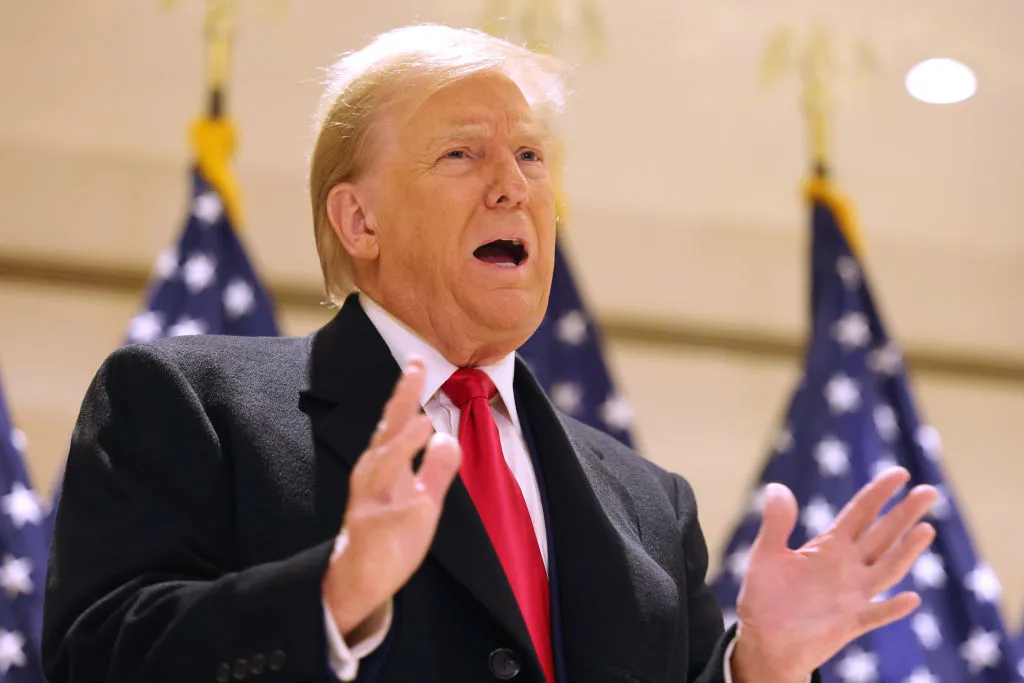The podcast that was the Vivek Ramaswamy campaign breathed its last late Monday evening in Iowa. It had aired in one uninterrupted stream for a little over eleven months.
Ramaswamy came fourth in Iowa, securing 7.7 percent of the vote and three delegates, or just over 8,400 people at latest count. He suspended his campaign as the margin of his defeat became apparent: this was more than an edging-out.
The biotech millionaire and author of Woke Inc. was always a long shot in the 2024 Republican primaries — Heavens, any candidate not named Donald Trump is a long shot. He announced his campaign on Tucker Carlson’s Fox News show in February 2023, back when Tucker Carlson had a Fox News show, and did media appearances more or less continuously from then on. His first day on the campaign trail in New Hampshire saw him do three more Fox hits and one for Newsmax. As his campaign dragged on and he sought small-dollar donors anew, the media appearances came from further afield: on Alex Jones’s Infowars, for instance, and on Twitter Spaces with its CEO Elon Musk and accused sex trafficker Andrew Tate. On one infamous occasion, he managed to improve the tenor of the discussion by inadvertently urinating with his mic on. It was the second most embarrassing Twitter Space of the cycle, after Ron DeSantis’s botched launch.
As befits an outsider candidate, Ramaswamy also embraced unorthodox methods of garnering support by leaning into influencers. He toured Iowa with Daily Wire podcaster Candace Owens and ousted congressman Steve King, who was forced out of office after being accused of white nationalism. He invited Benny Johnson to make a behind-the-scenes documentary of his first debate day, in which they jetskied around Miami. After announcing that he considered the app TikTok “digital fentanyl” and saying teens should be banned from using it, he joined it, at the encouragement of YouTuber Jake Paul, who then campaigned for him. Vivek’s outsize appeal on TikTok and elsewhere online was whispered about as a reason he might spring an upset. It never materialized — the world of politics hasn’t worked out how to harness the cult-like power of influencers to swing Republican primaries just yet.
His highlight-reel contains a number of debate clips: he stood out in Milwaukee, for different reasons, depending on your age. Younger voters liked how he stuck it to the GOP establishment and attacked the more experienced politicians on stage — while the same approach rubbed older and female voters the wrong way, because he came across as rude. His dual branding of Ron DeSantis and Nikki Haley as “Dick Cheney in heels” will outlast him. He baited Haley more by pointing out that her twenty-six-year-old daughter, like him, used TikTok — the former UN ambassador told him to “keep my daughter’s name out of your voice.” His barb against the portly Chris Christie was even less becoming: “His version of foreign policy experience was closing a bridge from New Jersey to New York. So do everybody a favor, just walk yourself off that stage, enjoy a nice meal, and get the hell out of this race.”
The Ramaswamy candidacy was important for the dynamic of those early debates, the purpose of which appeared to be seeing who could be the best “Trumpism without Trump” candidate. This was supposed to be Ron DeSantis’s unique selling point, after all. But where DeSantis equivocated and failed to commit on issues such as Ukraine, Ramaswamy branded himself “America First” — calling for an isolationist foreign policy and an end to the Ukraine war, ceding a number of Ukrainian oblasts to Putin in order to do so. Isolationist, that is, except for using military force to bomb the Mexican cartels: a policy of dubious legality that has since been adopted by most of his fellow GOP candidates.
Vivek also pledged to pardon Donald Trump on his first day in the White House, wearing a more oleaginous coat of Trump worship than Haley or DeSantis seemed prepared to. It must have stung this weekend when “the greatest president” of Vivek’s lifetime — his words — brutalized him on Truth Social, declaring the young upstart “deceitful” and “not MAGA.” Vivek did not retaliate. Eleven months in, Vivek was less pragmatic about Trump than he had been on day one, when he told a Manchester town hall that the former president “cares about national unity… but he’s not gonna deliver it.” He was even more willing to criticize Trump before his run: as his adversaries pointed out, he had done so in his 2022 book Nation of Victims, dubbing the former president a “sore loser.”
Beyond Trump, the Republican primary seemed to be separated into two camps: candidates willing to attack Trump, who lost because of it, and candidates unwilling to do so, who lost anyway. As his race progressed, Vivek doubled down in the second camp, despite earlier statements more suited to the first. He centered his campaign on “TRUTH,” making these emerging inconsistencies all the more pronounced. He would post some of these “truths” regularly, in sometimes jarring ways. For example, this Rupi Kaur-gone-wrong poem from last night:
As the end neared, he and his acolytes started to see conspiracy everywhere. “The complete erasure of @VivekGRamaswamy is starting to get old pretty fast,” tweeted Joey Mannarino, alongside a screenshot of the New York Times results tracker featuring just Trump, DeSantis and Haley. The “view all candidates” button had been cropped out.
The Vivek campaign began on Fox News with Tucker Carlson. It ended livestreamed on X. It’s on that app that Vivek Ramaswamy likely has his future too, with some prognosticators declaring that he’s “going to be a star in Republican politics for decades.” He’s already a streaming sensation, at least.






















